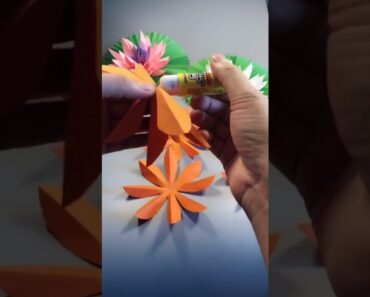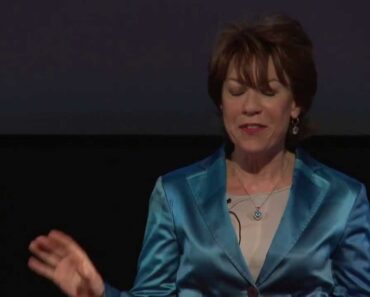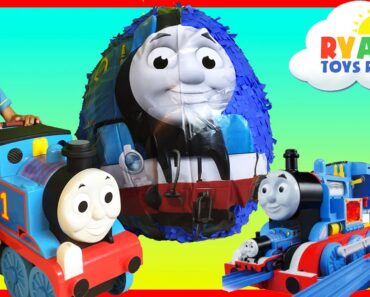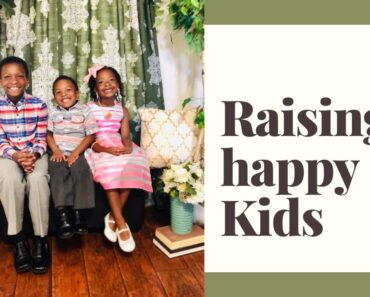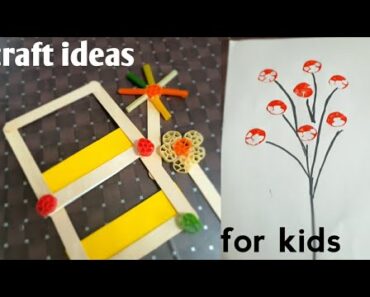A concussion is a mild traumatic brain injury (mTBI) that temporarily affects brain functions. Head injuries caused by a hit or blow to the head or rapid back-and-forth movement (whiplash) may often result in brain concussion (1).
Concussion requires close observation and care, even if your child feels fine. Undiagnosed and untreated concussions can increase the risk of permanent brain damage and disabilities. Seek immediate medical attention if your child develops any symptoms of a concussion.
Read this post to know more about the causes, risk factors, symptoms, treatment, and prevention of concussion in children and what to do during the recovery period.
What Happens In A Concussion?
There won’t be any visible injuries or blunt trauma in most children with concussion. The brain tissue is soft and surrounded by cerebrospinal fluid that protects it from light traumas by cushioning it. Concussions are caused by the impact of the vigorous movement of the brain inside the skull. The skull is hard to break, but a fall during sports or whiplash injury, like during a car crash, could move the brain inside the skull (2). There won’t be any visible injuries or blunt trauma in most children with concussion.
Movement of the brain due to impulsive forces may cause blood vessels and nerve damages inside the brain. These may cause changes in brain metabolism, cerebral blood flow, and neurotransmission, leading to temporary impairment of brain functions.
Who Is At Risk Of Concussion?
Any athlete involved in close-contact or high-speed sports has an increased risk of developing concussion. Football, hockey, and lacrosse are common collision sports among children (3). Even a child playing on the playground can have a concussion from falls.
Accidents during daily activities or while riding bikes or scooters may also lead to brain injuries. Not using child seats or seat belts in the car could also increase the risk of traumatic brain injuries (TBIs) in the case of an accident. Children engaged in sports activities without using safety gear, such as helmets, are also vulnerable to TBI.
What To Do If A Child Has A Concussion?
Children can recover from mild traumatic brain injuries, such as concussion, with proper care. If you suspect a concussion in a child in any situation, follow the below-listed ways to reduce severe damages (4).
- Do not let the child continue playing or do anything immediately
- Evaluate the child with a healthcare provider’s help before returning to activities since the child may look healthy and feel fine.
Brain injury, like any injury in other body parts, also requires time to heal. Proper rest and care could improve the recovery process and reduce the risk of long-term complications.
Note: Seek medical care before giving medications for pain since pain-relieving medications, such as NSAIDs (Ibuprofen), may mask the symptoms and increase internal bleeding risk. Acetaminophen (paracetamol) is often recommended for pain after head injury (5).
What Are The Symptoms Of Concussion In Children?
Concussion symptoms and signs may appear 24 to 72 hours after the injury. It is essential to monitor your child during this period closely. Older children may have emotional and cognitive symptoms, whereas younger children may exhibit physical symptoms.
The following symptoms and signs may be seen in concussion in children (6).
- Blackout or brief unconsciousness
- Headache
- Difficulty in walking
- Blurred vision
- Confusion
- Memory loss
- Slurred speech
- Vomiting
- Dizziness
- Difficulty in concentrating
- Irritability
- Sleep problems
- Mood changes
Some children can be unconscious after brain injury, whereas some may not lose consciousness. The loss of consciousness is not a symptom to assess the severity of brain injury. Sometimes, an unconscious child may have a milder injury than a conscious child.
Note: If post-concussion symptoms persist for months or years, it is called post-concussion syndrome. This is a complex disorder often requiring psychotherapies along with medications to relieve symptoms.
When To Call The Doctor
Visit the emergency room if your child experiences vomiting, dizziness, concentration problems, and worsening headache after a brain injury.
If you notice any behavioral or physical changes in your child during home observation after a concussion, call the doctor.
How To Diagnose Concussion In Children?
Children who have a sport-related injury can often be assessed by their coach or trainer for brain injuries in the following ways before seeking medical care (4).
- Sideline concussion tests: These involve observing an affected player’s behavior and administering some simple tests to evaluate brain functions.
- Baseline concussion test: This is a computer-based test to assess the affected person’s ability to process information and other brain functions.
The diagnosis of concussion includes detailed history-taking of injury and symptoms. Doctors may ask a few questions to evaluate your child’s brain functions, such as concentration and memory.
A neurological examination can be performed to analyze the nervous system’s functions, such as coordination, balance, and reflexes.
Medical resonance imaging (MRI scan) or computed tomography (CT scan or CAT scan) is often ordered to view the brain structures and determine internal bleeding.
Treatment For Concussion In Children
Treatment for concussion may vary in each child, depending on the severity of symptoms. Home care and observation for 24 to 72 hours are recommended for children who have no severe conditions.
Home care for mild concussion may include (7):
- Managing headache with aspirin-free medications, such as ibuprofen or acetaminophen.
- Not doing any physical activities until the symptoms disappear to reduce stress on the brain
- Not doing any cognitive or thinking activities using computers, cellphones, or other devices
- Avoiding loud sounds and bright lights
- Eating well and staying hydrated
- Getting enough rest and good sleep
Children should return to doing regular activities, such as school assignments or any physical activity, gradually. If any symptoms appear, stop home care and seek medical care in a hospital.
Note: Although physical and cognitive rest for a few days is needed to recover from a concussion, a prolonged period of rest is not recommended.
How To Help Children Get Better After A Concussion?
Most children will make a complete recovery in a short period with proper care. The child may have tiredness, irritability, and memory problems during the recovery phase, and you should support them and help them deal with the problem. Your encouragement and support could make them feel better and help them understand that these changes are temporary and are caused due to their brain healing from injury.
The following ways may help your child feel better during the recovery phase after concussion (8).
- Share information about concussion, its impact, and the recovery process to your child and the people around them.
- Prevent them from playing sports and doing other high-risk activities until the symptoms go away completely, and a healthcare provider permits your child to go back to their games or other activities. The second concussion before recovery may have long-term effects.
- Let them make a slow return to daily activities as recommended by the doctor. Your child may need rest for a few days, and then, they can start doing light activity, such as watching TV or taking a short walk.
- They could start doing moderate activities, such as school assignments, if the symptoms disappear.
- Regular activity, except sports, can be resumed after all symptoms disappear. It may take up to a month or more, depending on the injury, to return to normal life.
- Guide them to follow a healthy diet and stay hydrated to quicken the recovery process.
- Encourage them to take enough rest, including naps, during the day.
- Reduce distractions around them when attempting to do some activities. For instance, turn off the TV while they are reading or doing homework.
- Ask them to memorize or repeat certain things. This can help overcome the forgetfulness after a concussion.
- Give them enough time to do activities if they slow down after a concussion.
- Allow them to take more breaks.
- Encourage and support them emotionally.
Gradual return to day-to-day activities is recommended after a concussion. However, if the symptoms occur again, stop the activities, and visit a healthcare provider.
When Can A Child Return To School After A Concussion?
It is essential to inform the school management and teachers regarding your child’s condition since they also have a crucial role to play in the recovery process. Children can attend school as soon as they start feeling well. Some may feel well within a few hours, whereas others may require rest for a few days or weeks, depending on the severity of the injury.
Children can attend school before they become 100% symptom-free. However, the recovery can be different in each child, and you should seek advice from a healthcare professional. You may also explain to your kid that returning to school does not mean that they can play and that it may take more time before they can start any physical activity after a concussion (9).
The following changes at school may help children recovering from a concussion.
- Allowing rest breaks as required
- Not stressing to catch up on missed work
- Extra attention from teachers
- Reducing homework and other school assignments
- Postponing tests
- Attending a few hours or taking a half-day initially and then gradually making it a full day
- Not starting physical education and other activities
You may ask your child to seek help from a school nurse or inform teachers if they face any difficulties during school time.
When Can A Child Return To Sports After A Concussion?
Young athletes should return to sports after a concussion when their healthcare provider permits it. Usually, returning to sports happens when they are symptom-free or no longer taking medications (10).
After neurological evaluation, doctors may give a plan concerning the gradual return to sports. A second impact syndrome could occur if they go back to sports and other activities before complete recovery. Although rare, second impact syndrome may cause permanent brain damage in children.
How to Prevent Concussions In Children?
Sports and other physical training-related head injuries can be prevented by using proper-fitting headgear and safety equipment. Safety gears could help reduce the impact of trauma in most cases.
Appropriate car seats and seat belts for children may reduce injuries during car accidents. Many incidences of concussion in younger children can be prevented by childproofing your home (4). Younger children may try climbing windows, tables, etc., which may often result in injuries. Keeping the playing areas safe and not leaving a young child unattended could reduce the risk of head injuries that lead to a concussion.
Concussion, a mild traumatic brain injury, can be managed with home care after a doctor’s neurophysiological assessment. Most children with a concussion will recover within a few weeks or a month. Moderate and severe traumatic brain injuries may require hospitalization, and recovery may take months or even longer. It is essential to seek medical care for diagnosis and treatment in all kinds of head or brain injuries.
